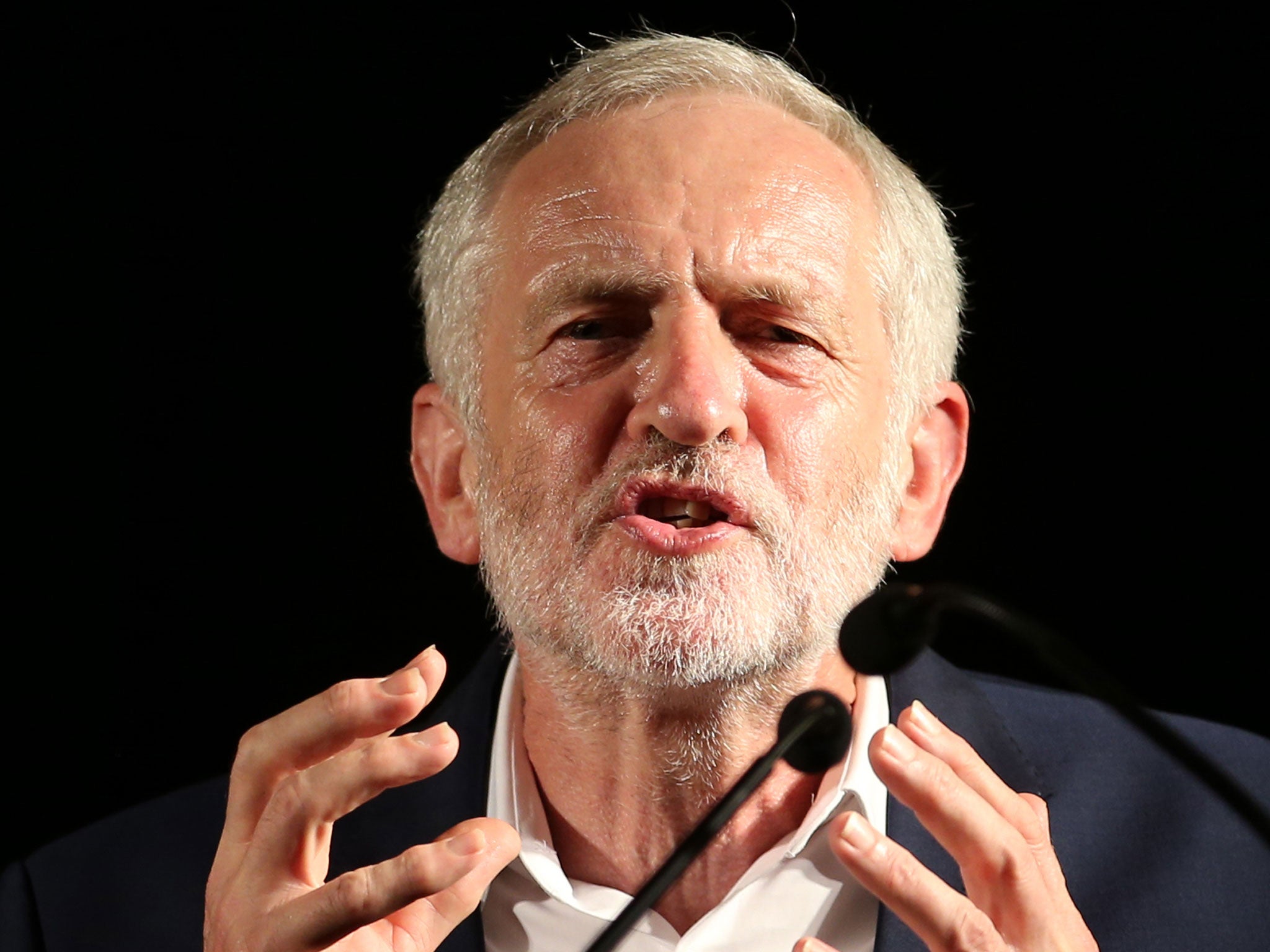After Corbyn wins, he'll need to end the Labour tradition of ignoring immigration - and oppose post-Brexit freedom of movement
If Corbyn leaves the field clear for May and Ukip to take a hard line on the issue, the danger is that many in Labour's traditional heartlands will not listen to the party at all


A few hours after becoming became Labour leader a year ago, Jeremy Corbyn addressed a rally about rights for refugees. In his position, most other politicians would have had more pressing things to do. His attendance was the first sign of how things could only get different under his leadership.
His commitment to refugees as “victims of war and oppression” was laudable. This week Corbyn claimed he had “changed the debate” on immigration. Well, that’s one way of putting it.
A growing number of Labour MPs believe their party is in now in the wrong place on this highly sensitive issue. They claim that Corbyn's "liberal, metropolitan, middle class leadership" is dangerously out of touch with many of Labour’s traditional working class supporters.
Immigration has been in Labour’s “too difficult” box for too long. For good reasons, the party did not want to give succour to Ukip or right-wing Tories by joining their clamour for a harsher line. The issue barely featured in the Labour leadership contest. The challenger Owen Smith could have questioned Corbyn’s stance but in an interview with The Independent, Smith said Labour should be strongly pro-immigration even if that caused “electoral damage.” It seems he was more worried about damaging his own electoral prospects than getting the right policy.
As three months of navel-gazing comes to an end with Corbyn’s expected re-election on Saturday, Labour needs to look outwards to the voters. If Corbyn is serious about winning power in the country – a big if— and building bridges to his semi-detached MPs, then he should launch a full and frank debate about the party’s policy on immigration.
Labour must acknowledge that the game moved on in June, when the public decided that curbing EU migration was more important than having the closest possible economic links with the bloc. Labour cannot wish the referendum verdict away, or pretend it had nothing to do with immigration. Of course there were other factors. But, thanks to a crude Leave campaign, immigration became the lens through which the EU debate was seen. In an era when the politics of identity trumps traditional left-right loyalties, Labour would be mad to remain in denial about what many of its natural supporters feel. Their concerns might be based on emotion rather than the facts about the undoubted benefits of immigration, but they are real.
A YouGov survey suggests that only 48 per cent of people who voted Labour at last year’s general election and then backed Leave in the referendum support the party now. Some 49 per cent of this group want a stricter immigration system. About 3.3 million of the 9.3 million Labour voters last year backed Leave, a very big group for Corbyn to alienate.
Labour’s ostrich-like approach is not tenable because immigration will remain at the top of the agenda. Theresa May has got the referendum message and is targeting struggling white working class families. Curbing free movement will be a red line in the Brexit negotiations, even though it will mean losing some access to the European single market. May has rejected the Vote Leave and Ukip demand for an Australian-style points system, but only because she wants an even tougher approach – probably work permits for EU nationals who already have a job, with a cap set by the Government.
Labour MPs such as Chuka Umunna, Stephen Kinnock, Rachel Reeves, Emma Reynolds and Jonathan Reynolds have started a debate on immigration that Corbyn cannot afford to stifle. The logic of their position is that the party should support an end to EU free movement, even if that means losing full single market access. It is a more realistic approach than to “have your cake and eat it,” which other EU leaders would never allow because it would encourage other countries to call in/out referendums. Labour could get brownie points by accepting the end of single market membership before May does.
If Labour continues to dodge the issue, it would breathe new life into Ukip just when the party is struggling to find a new role after the Brexit vote. Ukip is in second place behind Labour in 44 seats, and those Labour Leavers would be a realistic target unless Labour changes its stance.
A policy of managed migration would not be racist. It would be consistent with Labour’s values, and would give the party room to make the positive case for immigration and champion a non-racist society. If Corbyn leaves the field clear for May and Ukip (which they would love), the danger is that many in Labour's traditional heartlands will not listen to the party at all.
To regain power, Labour needs to rebuild a coalition of middle and working class voters. It has not won a general election since the rise in immigration in the mid-2000s and will not win again until it regains public trust on this critical issue.

Join our commenting forum
Join thought-provoking conversations, follow other Independent readers and see their replies